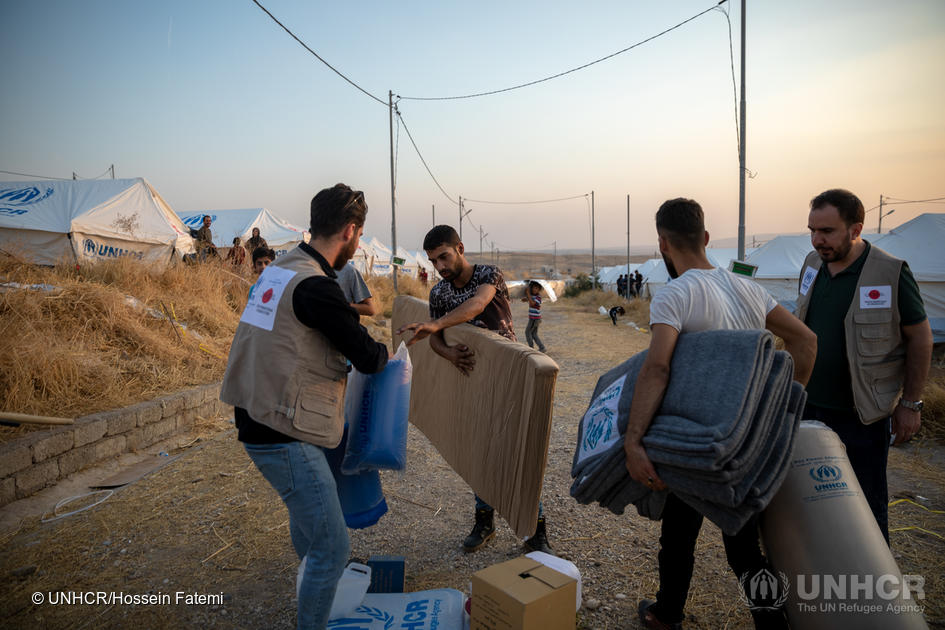Refugee describes her journey fleeing north-east Syria for safety
As the number of Syrians crossing into the Kurdistan Region of Iraq reaches some 10,000, one new arrival describes the difficult journey, and shares her fears of the coming winter.
By Rasheed Hussein Rasheed in Bardarash Camp, Kurdistan Region of Iraq
When Amina, a 64-year-old newly arrived refugee from north-east Syria finally disembarked at Bardarash camp near Duhok, she was exhausted after trekking for hours across the border to enter Iraq for safety.
Amina’s physical discomfort was eclipsed by the psychological anguish of being forced to leave her home. “We have not stopped crying since we arrived here yesterday,” she said, sitting in one of thousands of tents erected to provide shelter for the new arrivals. “Our situation is bad here. We used to live in a house which was clean and big. It cannot be compared to living here. It is very difficult.”
“Everyone was fleeing.”

Fleeing from her hometown of Al-Malikiyah in the far north-eastern corner of Syria, close to the borders of Turkey and Iraq, Amina and her family chose to leave after witnessing air strikes close to their home, and to avoid the possible conscription of male family members.
Their route was thronged with people from across north-east Syria heading for the border to escape the threat of further conflict. “The route here was overcrowded. Everyone was fleeing, no one wanted to stay.” said Amina.
UNHCR is registering all new arrivals, and together with its partners providing health care and protection services, including psycho-social support and specific services for unaccompanied children and people with specific needs.
As with all those arriving at the camp, Amina and her family were provided with a tent, blankets, mattresses and other essential items.
“This is not a life.”

“If it rains, the situation will worsen. I hope water will not enter my tent,” Amina said. “We want them to stop this war. This is not a life. We are human and we want to stay peacefully in our homeland.” Amina expressed her hope for an end to the fighting and the chance to return home rather than having to live under canvas for the approaching winter.
With arrivals at Bardarash camp averaging between 900 and 1,200 people each day, the camp is likely to reach full capacity within the coming week. UNHCR officials and local authorities are making plans to open more camps to cope with the continued influx.
According to UN figures published at mid-October, nearly 180,000 people, like Amina and her family, have so far been internally displaced within the region, including about 80,000 children.
About UNHCR:
The Office of the United Nations High Commissioner for Refugees (UNHCR) was established on 14 December 1950 by the United Nations General Assembly. The agency is mandated to lead and coordinate international action to protect refugees and resolve refugee issues. It strives to ensure that everyone has the right to seek asylum and find safe refuge in another state, with the option to voluntarily return home when conditions are conducive for return, integrate locally or resettle to a third country. UNHCR has twice won the Nobel Peace Prize, in 1954 for its ground-breaking work in helping the refugees of Europe, and in 1981 for its worldwide assistance to refugees.
Share on Facebook Share on Twitter
